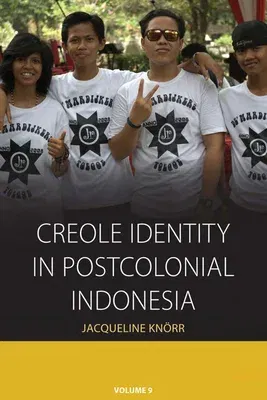Jacqueline Knörr
(Author)Creole Identity in Postcolonial IndonesiaHardcover, 1 March 2014

Qty
1
Turbo
Ships in 2 - 3 days
In Stock
Free Delivery
Cash on Delivery
15 Days
Free Returns
Secure Checkout

Part of Series
Integration and Conflict Studies
Print Length
236 pages
Language
English
Publisher
Berghahn Books
Date Published
1 Mar 2014
ISBN-10
1782382682
ISBN-13
9781782382683
Description
Product Details
Author:
Book Format:
Hardcover
Country of Origin:
US
Date Published:
1 March 2014
Dimensions:
22.86 x
15.24 x
1.42 cm
ISBN-10:
1782382682
ISBN-13:
9781782382683
Language:
English
Location:
New York, NY
Pages:
236
Publisher:
Weight:
485.34 gm